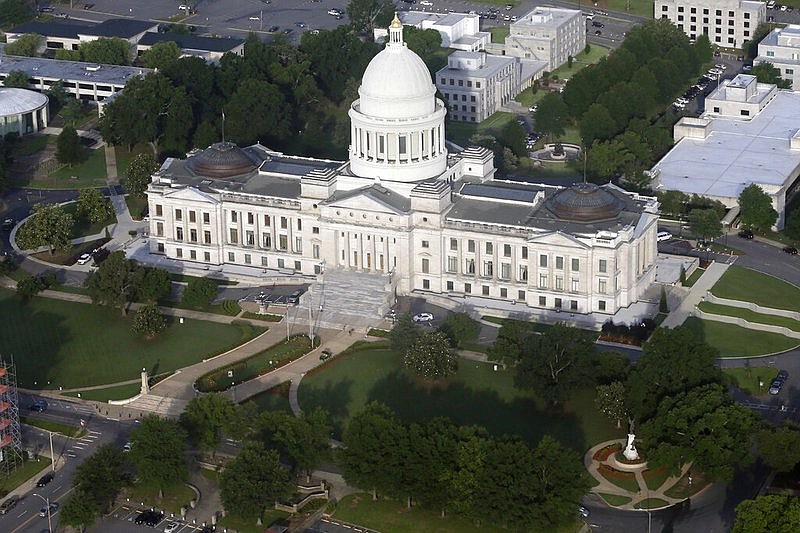The State Board of Election Commissioners will increase the number of counties selected for a random post-election audit by 10 in an effort to audit 5% of the votes cast in the 2022 general election.
The board approved a measure Tuesday to increase the number of randomly selected counties for a post-election audit from five to 15. The randomly selected counties are Pulaski, Sebastian, Crawford, Bradley, Ashley, Pike, Newton, Franklin, Searcy, Clay, Chicot, Crittenden, Stone, Perry and Cleburne counties.
State Board of Election Commissioners staff will randomly select batches of ballots -- the certified count is reflected on a single results tape -- to be counted by hand. The hand count will then be compared with the results tape.
Daniel Shults, director of the state Board of Election Commissioners, said he expects results of the audit to be completed by next spring.
"We still have votes to be officially certified on Wednesday and multiple counties are still in runoffs," Shults said Tuesday. "Some of the counties that don't have a runoff we might try to get an earlier start on."
Sebastian County Election Coordinator Meghan Hassler said Wednesday that she didn't know the county had been selected for post-election audit but that officials would be ready.
"We haven't been selected before since I have been here," Hassler said. "We store all of our materials according to the code, and from what I understand they will come in and ask for certain things.
"We are ready for it."
Ashley County Election Commission Chairman James Michael Smith said Wednesday afternoon that he wasn't aware Ashley County had been selected. He said the county doesn't have any runoff elections, and didn't experience any problems with election equipment.
"I haven't been notified about that at all, but I am sure that we are prepared," he said. "We follow the rules that are laid out for the elections."
A Pulaski County election official said Wednesday that he couldn't talk about the audit. The county will have runoff mayoral races in Alexander, Jacksonville, Sherwood and Wrightsville.
Shults said that prior to this year the State Board of Election Commissioners would select five counties at random, which would include one county from each congressional district and one county with a population of more than 100,000.
He said it was necessary to increase the scope of the audit in order to capture a more significant sample so that Arkansas voters can have increased confidence in the integrity of state elections.
On Tuesday, the State Board of Election Commissioners randomly selected two counties with populations of more than 100,000, five counties from the 1st Congressional District, two counties from the 2nd Congressional District, one county from the 3rd Congressional District, and five counties from the 4th Congressional District.
A total of 909,582 votes were cast this year in the general election in Arkansas based on unofficial election results, according to documents provided at Tuesday's meeting. That sets the target number of ballots to audit at 45,479.
Arkansas law requires the State Board of Election Commissioners to audit the results of each general election to ensure the integrity and accuracy of the voting process.
Before the 92nd General Assembly, the State Board of Election Commissioners voted to propose legislation that would authorize the board to conduct a post-election audit of general election results.
In the 2019 regular session, Act 888 of 2019 was adopted and provided the board with the authority it requested.
The act also provided that the State Board of Election Commissioners would conduct a pilot program after the 2020 general election to gain experience in conducting post-election audits, and to utilize that experience to develop a more detailed plan for auditing future elections.
Shults said the first few years of the pilot program have been successful and that is the reason commissioners wanted to expand it without putting undue burden on local election officials.
"A lot of these smaller counties' election coordinators are volunteers, so we didn't want to put more on them," Shults said.
"It made sense for us to do it, but unfortunately that means we can't do the audits until after the vote has already been certified."

